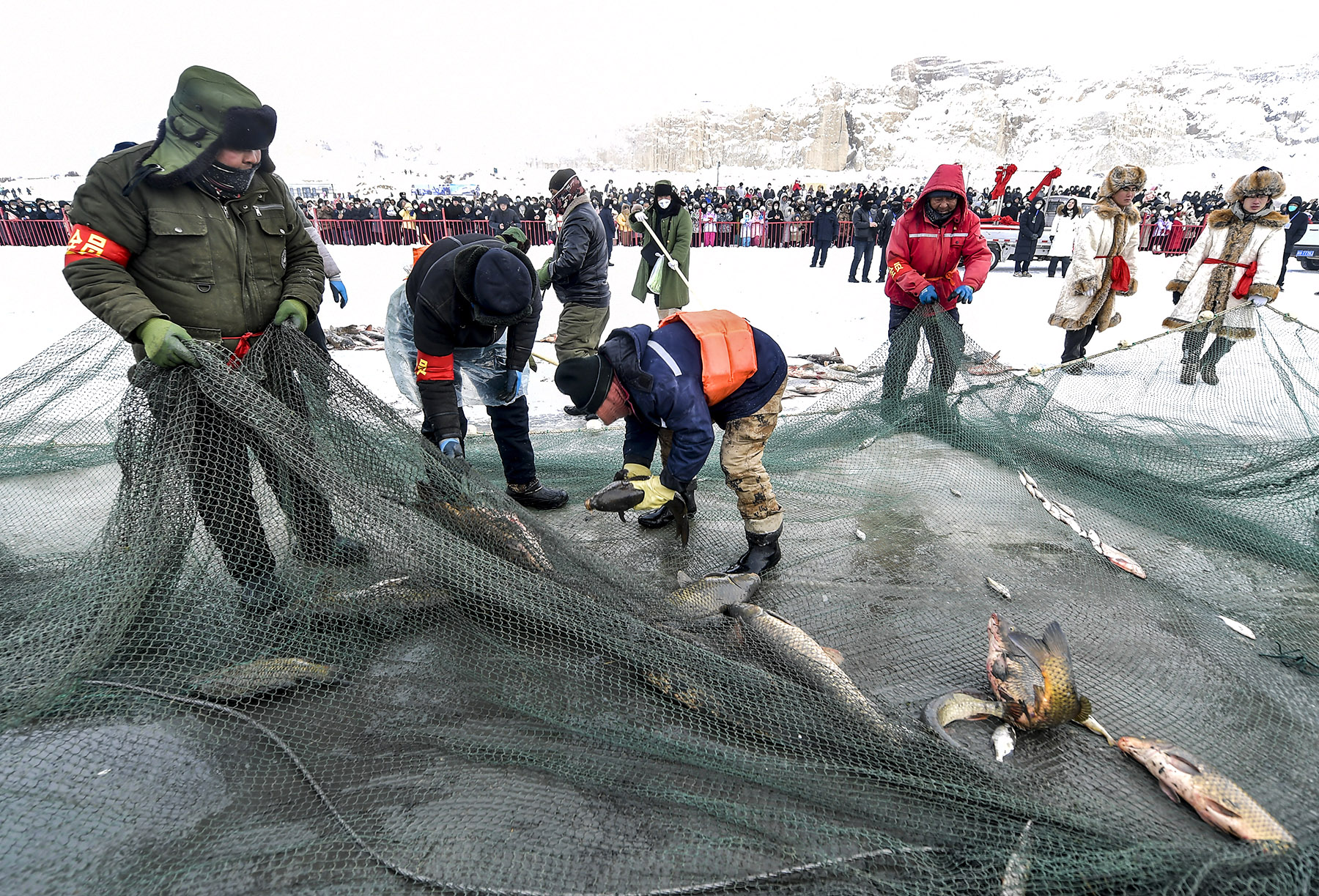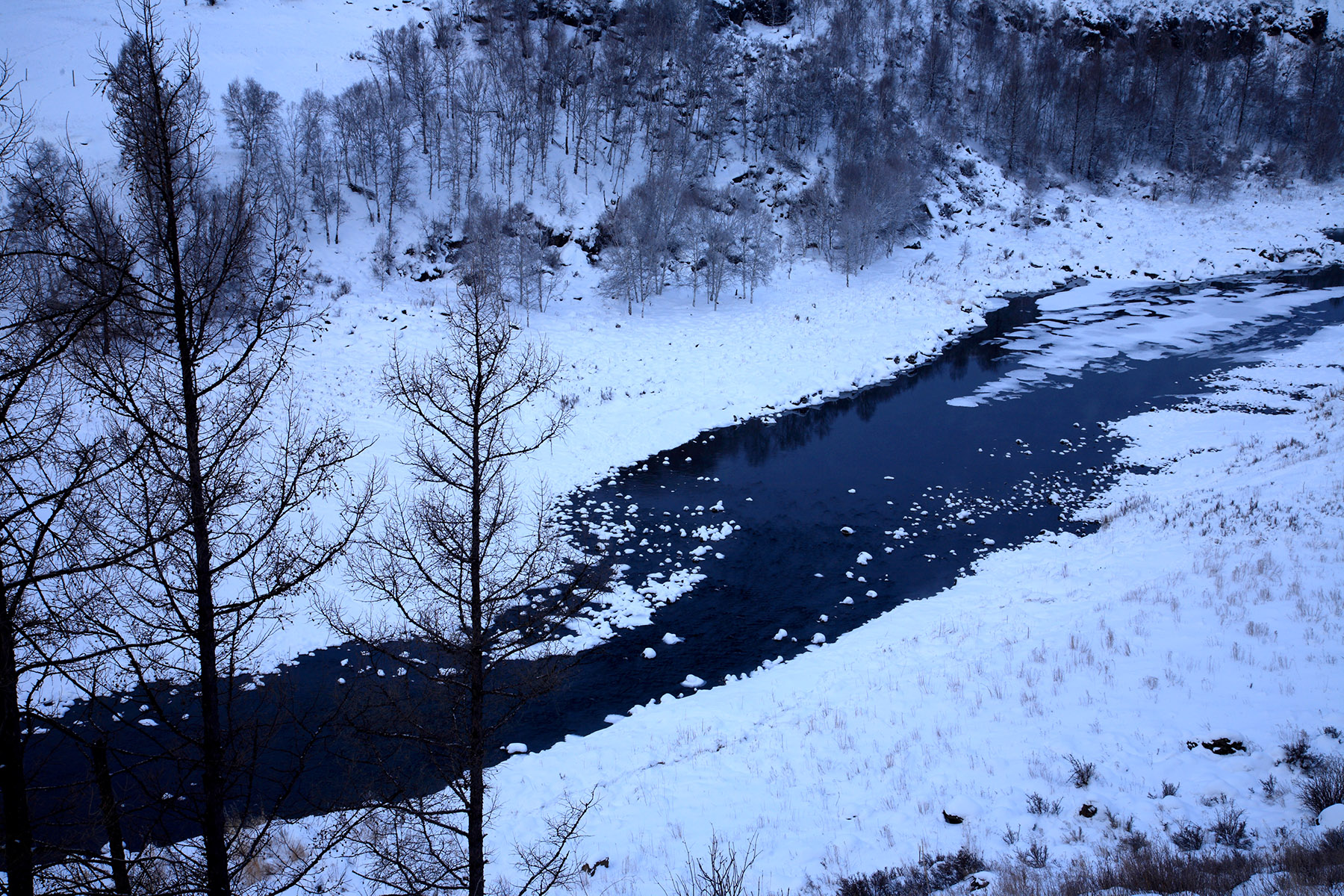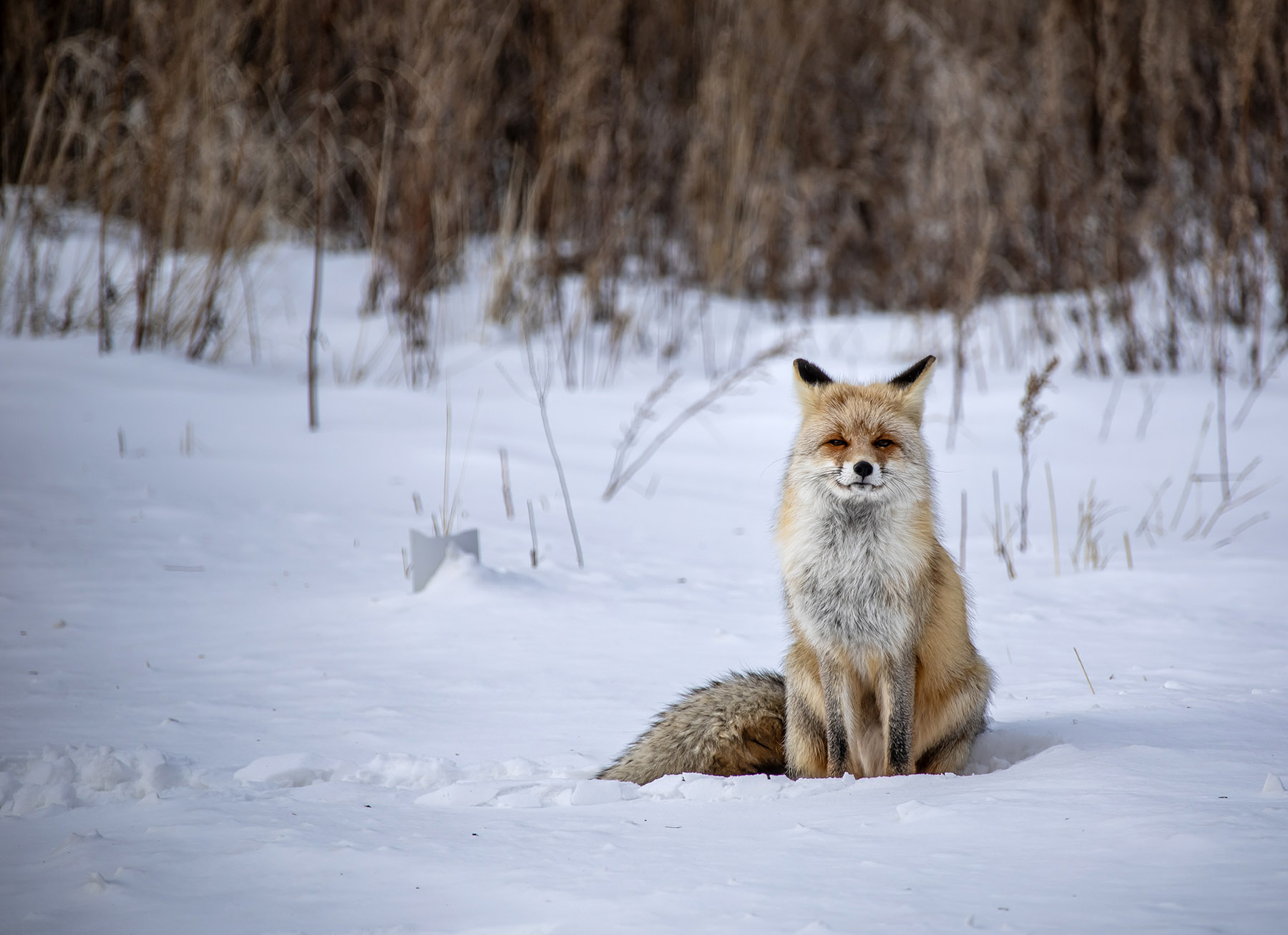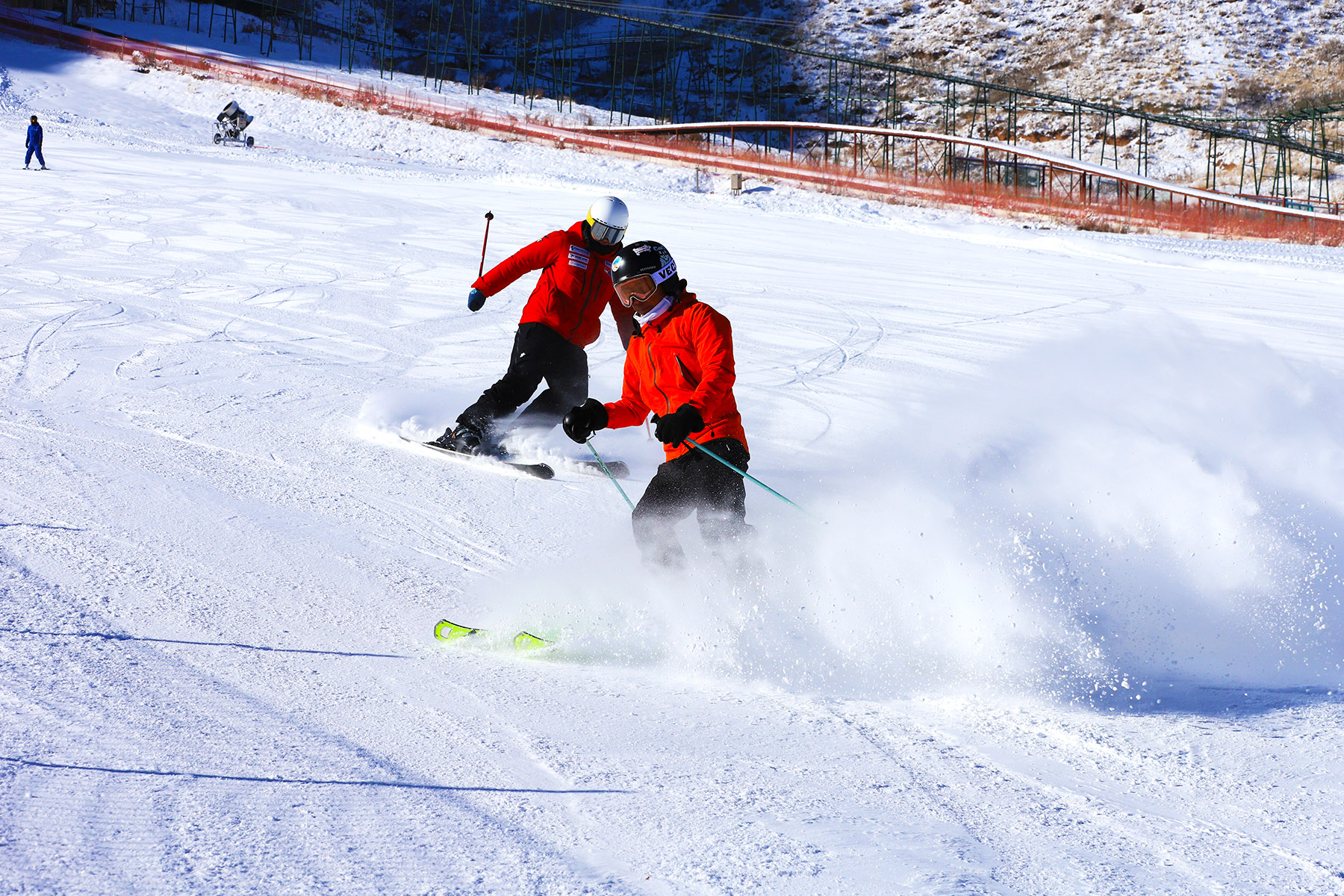
The ethnic diversity, folk celebrations, and vast and varied landscapes set the Inner Mongolia and the Xinjiang Uygur autonomous regions apart from the rest of China as cold weather getaways. The Mongolian and Uygur cultures add a unique flavor to these winter tourism destinations.
Visitors can experience yurts and horseback riding across snowy grasslands or partake in the Naadam Fair to appreciate traditional Mongolian wrestling, archery, and horse racing. In Xinjiang, the Uygur culture takes evident forms in ethnic performances, traditional handicrafts, and regional cuisine like laghman (Uygurstyle noodles with flavorful sauces) and kebabs, which are especially appealing during the cold months.
Additionally, vast grasslands across Inner Mongolia can transform into a serene, white wonderland for visitors to experience activities like ice fishing, dog sledding, and snowmobiling.
READ MORE: Winter provides cold comfort
The snow-covered Tianshan Mountains and the stunning Karakul Lake strike awe in Xinjiang, complemented by skiing and snowshoeing in the arid landscape of the northwestern region.

Forests in Arxan
The Hinggan League in the Inner Mongolia autonomous region boasts an area of 60,000 square kilometers and is home to rich grasslands, forests, wetlands, hot springs, snow and ice. Winter blesses the region with exceptional tourism resources.
Arxan in the northwest of the league boasts breathtaking forest landscapes and a rich and unique forest culture. At the Lujiaowan (deer horn bay) Forest Ranch, countless surprises await in winter, where tourists can experience the exhilarating rush of horseback riding, the precision of archery, and driving a snowmobile across the vast, snow-covered fields.
Tourists can join a team collaboration on an ice dragon boat or try the thrill of combat in a snow-covered world in the real-life version of the video game Counter-Strike.
Adorable animals ranging from leisurely strolling sika deer and galloping horses to herds of cows, sheep, and camels add a touch of exotic charm, bringing warmth and joy to the winter landscape.
About a 40-minute drive away, the Bailangfeng scenic spot offers views of sparkling rime. It has a carefully designed viewing platform that offers visitors a panoramic view of the extensive forests. As the sun rises, the scene becomes a silver wave, with each tree covered in frost sparkling in the sun rays. As the gentle breeze blows, the branches sway slightly to produce a wind chime melody.
Folk experiences are accessible at Bailang town, 11 km from Bailangfeng. The town prepares a winter tradition known as "rolling ice", symbolizing the removal of bad luck and illnesses. Be sure to see the town's bark painting made of rough birchbark meticulously peeled and separated into up to 40 layers, each with a different tint.
The Arxan National Forest Park, about 90 km from the town, hosts one of Asia's largest volcanic geological sites — Shitang Forest — where volcanic stones of varying sizes and uneven surfaces are exposed in the snow like scattered round mushrooms. The volcanic crater lake — Tuofengling Tianchi, formed 300,000 years ago — is a highlight, while the Santan Gorge hosts glistening jade-green waters.
The Unfrozen River running through the park is a natural wonder as it never freezes even when temperatures drop to-30 C.

More than snow
Xinjiang sits in the world's golden latitude belt for snow and ice and enjoys an average snow season of over 100 days each year, delivering excellent snow quality. The unique geography of the region, a mixture of mountains and basins, creates favorable conditions for skiing with significant elevation differences and moderate slopes. Several regions within Xinjiang's rugged mountains have been converted into ski resorts featuring top-tier facilities.
Altay prefecture, in the north of Xinjiang, is known for its long winter season that can last up to eight months and its vast area of natural powder snow.
The Jiangjunshan Ski Resort in Altay is among the few high-altitude resorts located in a city center. The resort boasts 72 ski slopes, two of which are certified by the International Ski and Snowboard Federation and can host international competitions. The resort also introduced paragliding and hot air balloons this year.
Snowmobiles are also arranged for visitors to explore the wonders of nature around the resort.
After bidding farewell to Jiangjunshan, head to Ulungur Lake, which is less than a two-hour drive. The lake in Altay's Fuhai county offers spectacular winter fishing events that will last till March. As one of the largest inland freshwater lakes in China, Ulungur has seen fishermen employing traditional methods such as digging holes in its frozen surface, casting nets, and hauling tons of fish up through the ice.

Besides soaking up the harvesting vibe, tourists can engage in ice dragon boat races, try their hand at winter fishing using small nets, and take part in a range of activities, such as ice skating, snowmobiling, and sleigh rides. Moreover, a diverse selection of local delicacies awaits to tantalize their taste buds.
ALSO READ: China's winter tourism, sports hit peak stride nationwide
For those with an adventurous spirit, cross-country tours have been developed to explore the hidden wonders of the Taklimakan Desert. Compared to the hot temperatures and sandstorms in other seasons, the white snow covers the golden desert, adding to the interplay of light and shadow amid the undulating dunes.
If you go
Xinjiang: Altay in Xinjiang is about a five-hour flight from Beijing. Roasted lamb, often prepared whole and slow-cooked to perfection, flavored with spices like cumin and chili, as well as fresh and creamy yogurt typically served in clay pots, can be enjoyed in local restaurants. Those looking for a beverage that packs a punch should try kumis, alcohol made from mare's milk.
Inner Mongolia: It's about a two-hour flight from Beijing to Ulaanhot, gateway to Hinggan League. Don't miss the roasted lamb seasoned with herbs and spices, and Mongolian milk tea that is an essential part of daily life. The hearty beverage is a staple for herders and is perfect for cold weather. Mongolian wool is highly regarded for its softness and warmth, and traditional wool coats are popular souvenirs.


